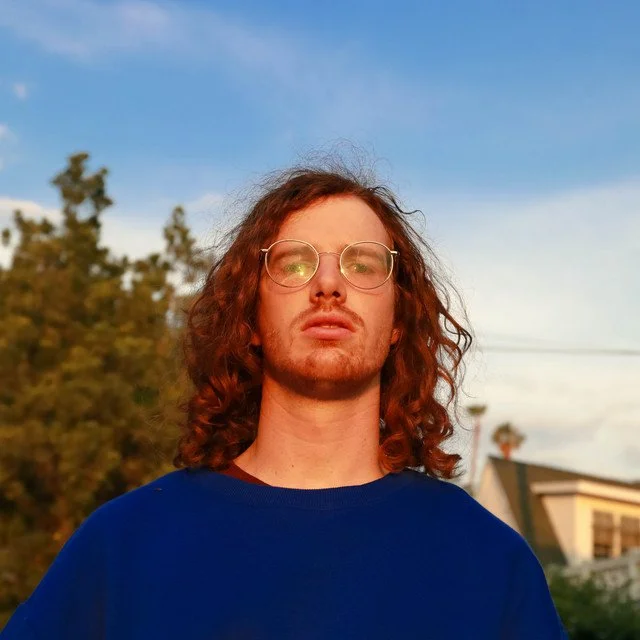Q&A: Looking Inward For Creative Gold, Goldwash Captures An Escape From Isolation in “Arson Dreams”
☆ BY Joey Povinelli ☆
A NIGHTCLUB ON THE EDGE OF YOUR SUBCONSCIOUSNESS — Goldwash’s second LP, Arson Dreams, is a seamless blend of R&B and psychedelic that makes you dance and introspect. Following its debut, Flat Earth Club, Gold has been producing for artists like Kevin Abstract, BROCKHAMPTON, Flo Milli, and Baird. But Arson Dreams is a world all unto itself.
The arrangements on Goldwash’s newest album capture the feeling of time dilation that occurs in isolation. Even on upbeat songs like “Lonely Summer,” a wooziness melds with the groove. “Fields,” a two part suite, is a ballad that seems to span time and space with Goldwash’s piano playing as an anchor. Jazz flourishes pop up, notably the staccato piano accents in “Dream Journal,” and an inspired experimental horn outro on “4AM Diptych.”
Drawing on dreams and anxieties, Goldwash’s voice bleeds emotion, knowing just the right buttons to press through both technicality and processing. For how introspective the lyrics are, it's always fun. As it was recorded almost entirely in his bedroom, there is an added intimacy present. Goldwash proves isolation has its benefits: only when you look inward can you find creative gold.
Read below as we talk to Goldwash about what was on his mind during its production, and listen to Arson Dreams, streaming now.
LUNA: Where did you record Arson Dreams? How did that setting influence the album's sound?
GOLDWASH: I recorded the majority of Arson Dreams in my bedroom during the first few months of lockdown. l wanted the album to feel like a place much more exciting and beautiful than the monotony of where I was and what I was doing, so I obsessed over the production and arrangements to build a psychedelic world as a form of escapism.
LUNA: Where did the record's title come from?
GOLDWASH: I knew the record was nocturnal, and I was having really vivid dreams that were filling the social vacuum of spring/summer 2020. Also, I was thinking and writing about environmental and societal collapse, and the knowledge that fossil fuel companies are setting the future of the planet on fire (the smoke from the wildfires that summer were impossible to ignore). Conversely, arson can be a cathartic, assertive act of rebellion — during some of the George Floyd protests in LA, I saw some cop cars that had been set on fire. So Arson Dreams has different senses depending on how you approach it, which I like.
LUNA: What's the biggest difference with how you approach production for yourself versus other artists?
GOLDWASH: It depends on the artist, but what's always true is that for my own music, I trust myself to know what’s cool for me. When I work with another artist, I trust them to know what’s cool for them and will ultimately defer to their judgement — I’m filling a role in their process, which is really freeing and scratches a different musical itch.
On a practical level, I just try to make stuff I like, and if I’m inspired to do a lead vocal that feels like Goldwash, I might try it. Or maybe I’ll flip it into something else and pull it up in a session with another artist. The main thing for me as a producer is to have a lot of ideas that feel exciting; the context can come later.
LUNA: Arson Dreams is extremely cohesive with tracks flowing into each other seamlessly. Was the record conceived as one piece or did it come together on an individual song-by-song basis?
GOLDWASH: I appreciate that! Some songs were written individually, but I did fly different melodies/lyrics/sounds around between and among songs, trying to make the project as much of an experience as possible. There’s some of the same arrangement tricks on multiple songs, like doubling electric and upright bass, and pairing organ with nylon guitar. I also planned a lot with Seth Manchester (who mixed the album remotely) about using the same tape-machine/amps/compressors/plate reverb across a lot of the album.
I know it can be a big ask but I definitely hope people listen to the whole thing straight through if they have 34 minutes to spare.
LUNA: One of my favorite songs on this project is "Dream Journal.” Have you ever kept a dream journal yourself?
GOLDWASH: I actually never have! Though I wrote a lot of the lyrics to that song in a stream-of-consciousness flow right after waking up one morning.
LUNA: Who were some of the artists you listened to during the Arson Dreams' production? In what way did they influence it?
GOLDWASH: I listened to a ton of Joni Mitchell, King Krule, Dorothy Ashby, Solange, Arthur Verocai, Earl Sweatshirt, and a handful of other artists. But the biggest artistic influence on this record was my brother Baird, who had just moved to LA with me that spring. He helped with production, guitar, and bass on a number of songs, but beyond that he was just very good at raising the bar and being brutally honest in terms of sound selection and songwriting.
LUNA: Any plans to perform live soon?
GOLDWASH: I’d love to, but I’ve been blessed to be super busy with exciting studio projects, and it’s been hard to find the time to even conceptualize a good live format for these songs, let alone rehearse/book shows. When I do, they'll have to stand alone, with a lot of room for improvisation.
LUNA: How do you want your listeners to feel once the record ends?
GOLDWASH: I want them to have crazy dreams.
CONNECT WITH GOLDWASH
SPOTIFY
-
weekly tunes playlist has been updated! new tracks from @furtradeband, @pecqband, @garryfool & more! check it out! https://t.co/ToFU0R6YGo
-
RT @oliviaborch: new @LunaCollective out todayyy shot by @alltookev ✨ @P1H_official editorial design by me ! https://t.co/cvSCKsWB5D
-
RT @rlyblonde: @AnnieDirusso for @LunaCollective shot by me #35mm #portra800 https://t.co/0UUJSCBGcH






